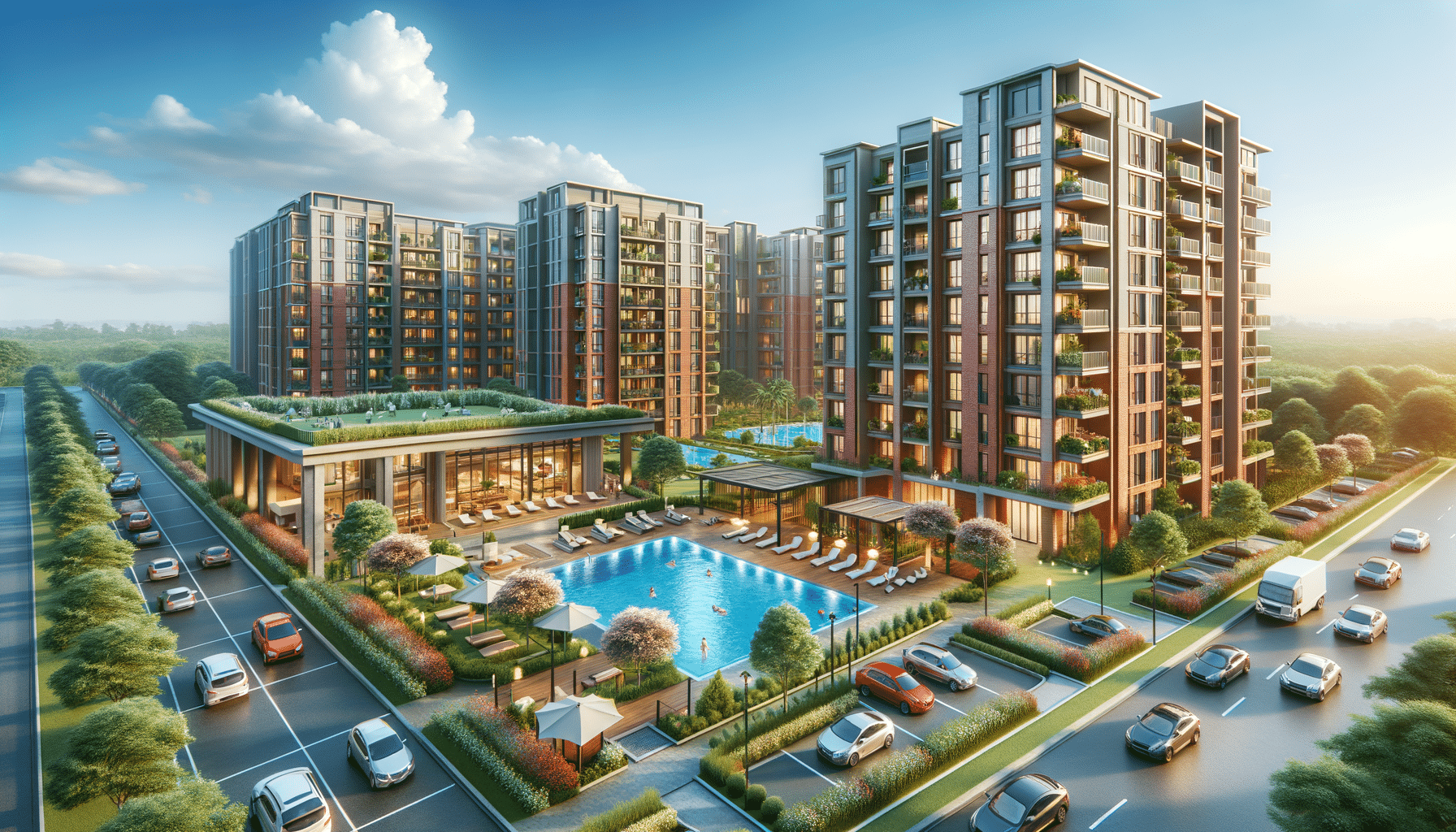
Convenient Living: Explore Apartment Options
Understanding Your Needs and Budget
When it comes to renting an apartment, the first step is understanding your own needs and budget. This may seem straightforward, but it requires careful consideration. Start by listing your non-negotiables. Do you need a certain number of bedrooms? Is having a pet-friendly environment essential? Consider your lifestyle and how it influences your living space. For instance, remote workers might prioritize a home office space.
Next, assess your financial situation. A common guideline is to allocate no more than 30% of your income to rent. However, this can vary depending on personal circumstances. It’s crucial to factor in additional costs such as utilities, internet, and commuting expenses. Creating a detailed budget will help you understand what you can afford and prevent future financial strain.
Take time to research the average rental prices in your desired location. This will give you a realistic picture of what to expect and help you avoid overpriced options. Consider using online tools and rental apps to compare prices and amenities. By having a clear understanding of your needs and budget, you can streamline your apartment search and make informed decisions.
Exploring Different Types of Apartments
Not all apartments are created equal, and understanding the different types can help you find the right fit. Here are some common types:
- Studio Apartments: Ideal for singles or minimalists, studios combine living, sleeping, and cooking areas in one space.
- One-Bedroom Apartments: These offer a separate bedroom, providing more privacy and space for individuals or couples.
- Loft Apartments: Known for high ceilings and large windows, lofts are often converted industrial spaces, perfect for those who appreciate unique architecture.
- Garden Apartments: Situated on the ground floor, these units often feature outdoor space, ideal for those who enjoy gardening or outdoor relaxation.
Each type of apartment has its own advantages and may suit different lifestyles. Consider what amenities and features are most important to you. For instance, if natural light is a priority, a loft might be appealing. Conversely, if outdoor space is essential, a garden apartment could be the better choice.
Understanding these differences will help you narrow down your options and find an apartment that aligns with your preferences and lifestyle.
Location, Location, Location
The location of your apartment can significantly impact your daily life. It’s not just about the neighborhood’s reputation but how it fits your routine and needs. Consider the following factors when choosing a location:
- Proximity to Work: A shorter commute can save time and reduce stress, making it a crucial factor for many renters.
- Access to Public Transportation: If you rely on public transit, ensure that your apartment is conveniently located near bus stops or train stations.
- Local Amenities: Proximity to grocery stores, parks, and entertainment venues can enhance your living experience.
- Safety: Research crime rates and talk to current residents to gauge the safety of the area.
Location can also affect rental prices, with central and highly sought-after areas often commanding higher rents. Balance your desires with practicality to find a location that meets your needs without exceeding your budget.
By prioritizing location, you can find an apartment that not only suits your lifestyle but also enhances your quality of life.
Understanding Lease Agreements
Lease agreements are crucial documents that outline the terms and conditions of your rental. Understanding these terms can prevent misunderstandings and protect your rights as a tenant. Here are key aspects to consider:
- Lease Duration: Standard leases are typically 12 months, but shorter or longer terms may be available. Consider your future plans when choosing a lease duration.
- Rent Increases: Understand the conditions under which rent can be increased. Some leases include clauses that allow for annual increases.
- Maintenance and Repairs: Clarify who is responsible for maintenance and repairs. Knowing this can save you from unexpected costs.
- Termination Policy: Be aware of the notice period required if you decide to move out. This is usually 30 to 60 days.
It’s essential to read the lease agreement thoroughly before signing. If any terms are unclear, don’t hesitate to ask for clarification. A well-understood lease agreement can provide peace of mind and ensure a smooth rental experience.
Tips for a Successful Apartment Search
Searching for an apartment can be overwhelming, but with the right strategies, you can find the perfect place. Here are some tips for a successful search:
- Start Early: Begin your search at least two to three months before you plan to move. This gives you ample time to explore options and negotiate terms.
- Use Multiple Platforms: Utilize various online platforms and local listings to broaden your search. Each platform may have unique listings.
- Visit in Person: Whenever possible, visit potential apartments in person. This allows you to get a real feel for the space and the neighborhood.
- Prepare Necessary Documents: Have your documents ready, such as proof of income, references, and identification. This can expedite the application process.
- Be Ready to Act: The rental market can be competitive, so be prepared to make quick decisions when you find a suitable apartment.
By following these tips, you can navigate the apartment search process with confidence and find a living space that meets your needs and budget.